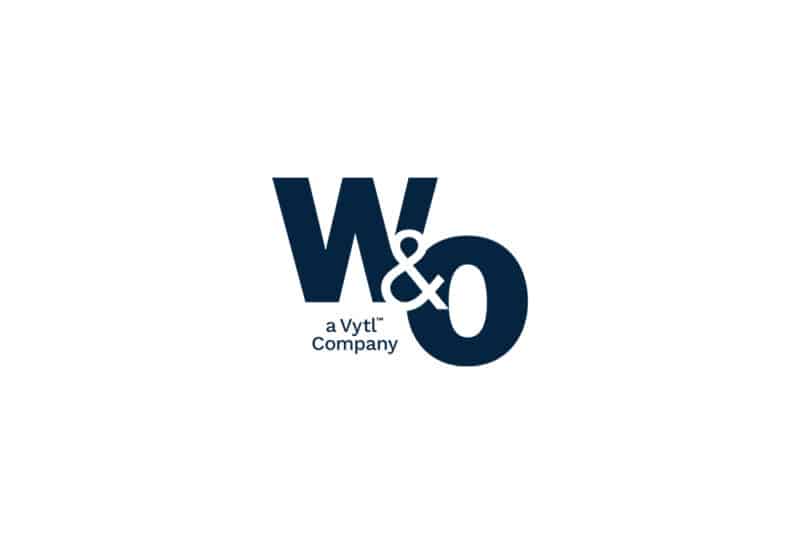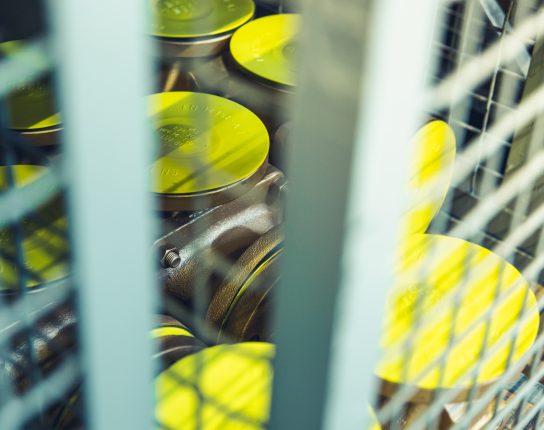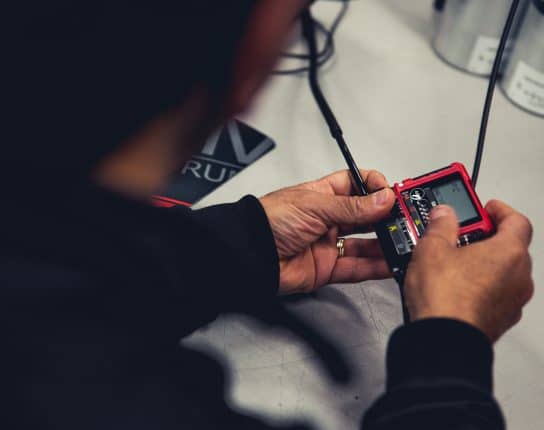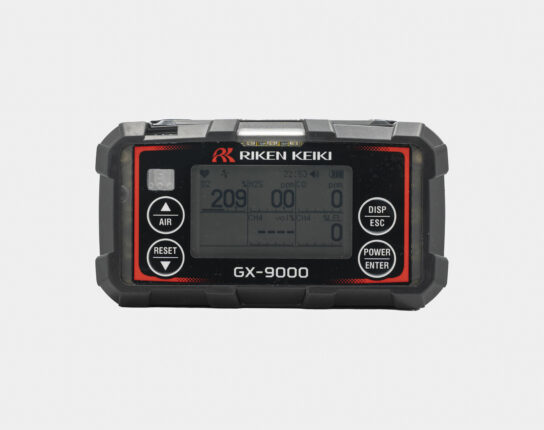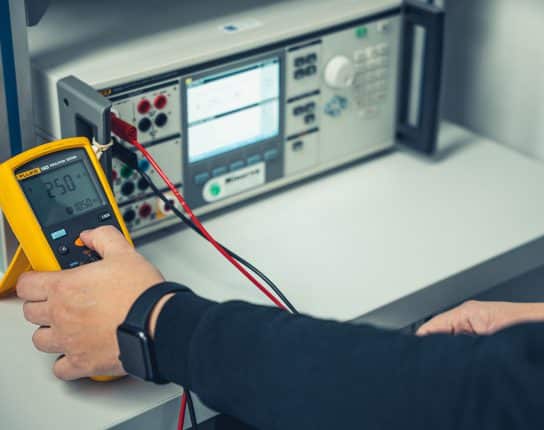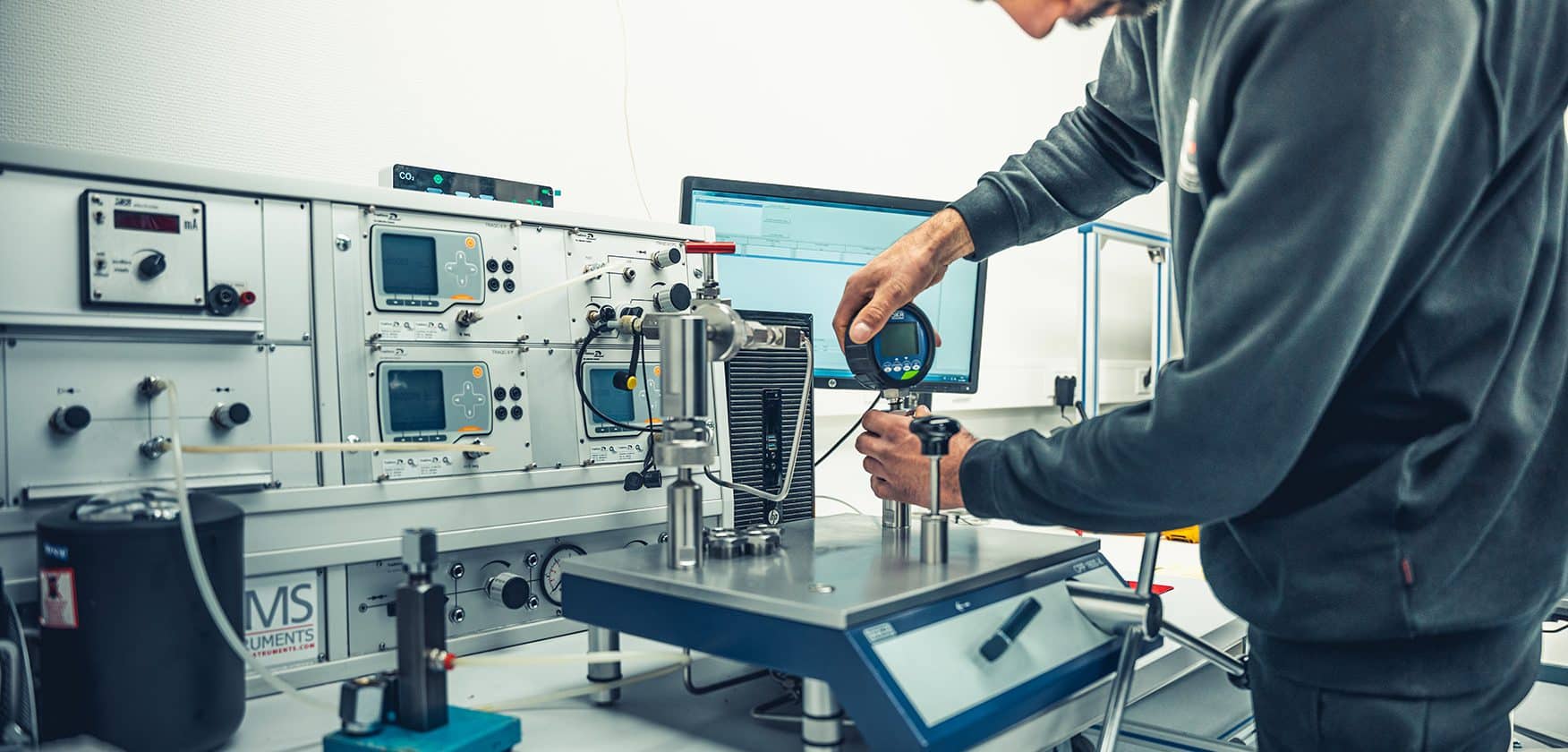
Common questions about pressure gauge calibration
Pressure gauge calibration is essential to maintaining the accuracy and reliability of pressure measurement devices across various industries. Whether used in oil and gas, pharmaceuticals, food and beverage, or other fields requiring precise pressure readings, understanding the basics of calibration is crucial. Here, we answer some common questions about pressure gauge calibration to help you keep your instruments in top condition.
What is pressure gauge calibration?
Calibration involves comparing a pressure gauge’s readings against a known reference standard to ensure it measures pressure accurately. Over time, gauges can drift due to mechanical wear, environmental conditions, or stress, leading to incorrect readings. Calibration identifies these discrepancies and adjusts the gauge to ensure accuracy, maintaining measurement integrity and supporting regulatory compliance.
Why is pressure gauge calibration important?
Calibration is vital for several reasons:
- Accuracy: Over time, pressure gauges can drift due to wear and tear, environmental conditions, or mechanical stress. Calibration ensures that your gauge remains accurate.
- Compliance: Many industries are subject to regulatory standards that require periodic calibration of measurement instruments to ensure compliance.
- Safety: Inaccurate pressure readings can lead to hazardous situations, especially in industries like chemical processing or aviation.
- Cost-Efficiency: Regular calibration prevents costly downtime, product recalls, or damage to machinery caused by incorrect pressure measurement
How often should gauges be calibrated?
The frequency of calibration depends on several factors. Industry standards and regulations often dictate specific intervals; for example, some sectors require annual calibration, while others may need more frequent checks. The frequency of use also affects how often calibration is necessary—gauges used constantly or in harsh environments may require calibration every three to six months. Other considerations include environmental conditions (such as exposure to extreme temperatures or vibrations) and manufacturer recommendations. A general guideline is to calibrate at least once a year, but more frequent calibration may be required for critical applications.
What are signs that a gauge needs calibration?
There are several indicators that your pressure gauge may require calibration:
- Inconsistent readings: If the gauge displays erratic or fluctuating readings, it might need calibration.
- Visible damage: Physical damage, corrosion, or wear on the gauge can affect accuracy.
- Exposure to harsh conditions: Gauges exposed to extreme temperatures, high pressure, or vibrations are more likely to drift and need calibration.
- Post-repair: If a gauge has been repaired or adjusted, it should be recalibrated to ensure accuracy.
What is involved in the calibration process?
Calibration typically involves several steps. First, the gauge is prepared by cleaning it and inspecting for visible damage or wear. The gauge is then connected to a pressure source and a reference standard, such as a deadweight tester or a digital pressure calibrator, to compare its readings at different points within its range. If discrepancies are found, adjustments are made to bring the gauge within the acceptable range of error. Finally, the results are documented, noting any adjustments and confirming that the gauge meets the required standards.
Can I calibrate a pressure gauge myself?
While it is possible to perform calibration in-house, it requires specialized knowledge, experience, and equipment. For many companies, especially those in highly regulated industries, using a professional calibration service is more reliable and cost-effective.
Pressure gauge calibration is a critical maintenance practice to ensure accurate and reliable readings. It supports compliance with industry standards, enhances safety, and is cost-effective by preventing potential damage and downtime. At GMS Instruments, we offer professional calibration services to meet all your pressure gauge needs.
If you have further questions or need assistance with pressure gauge calibration, feel free to contact us. Our team is always ready to help you maintain the precision and reliability of your instruments.
Related
More of the same